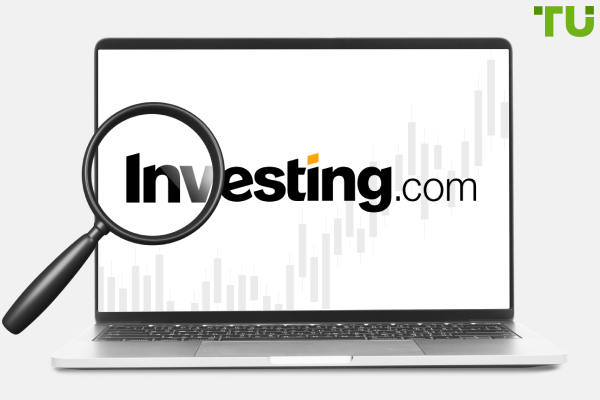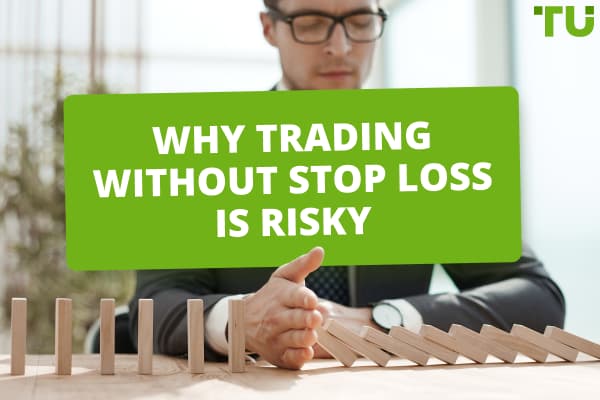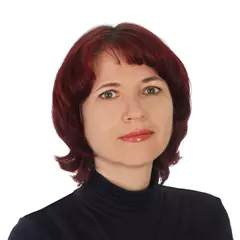Futures trading is a little complex business, even for seasonal and experienced traders. Moreover, choosing the right brokerage for futures trading is also not an easy task because you need to consider so many factors beforehand. It’s not only about the features and tools that a brokerage offers, but it’s also about the contract fees that you’ll need to pay.
While looking for a futures broker, you need to make sure that it offers a wealth of research and technical indicators, an abundance of screening and charting tools, an intuitive and responsive platform, real-time quotes and data, etc. All the factors make it challenging to choose the best broker for futures trading. That's where this article will come into place, as it contains the best futures broker for trading in 2024. So, without any further ado, let’s dive right in.
What is futures trading?
Futures are basically financial contracts that take place between a buyer and a seller. Both of the parties agree to exchange the principal market at some future date for a fixed price. The buyer is obligated to buy an underlying market, and the seller is obligated to sell it before or at the expiration date of the contract.
Futures enable you to gain enhanced market exposure by spending a small amount of money known as margin. There are two types of margin, which are as followed:
-
Initial margin
-
Maintenance margin
The initial margin is the amount that you need to put in order to undergo the contract. On the other hand, the maintenance margin is what you need to keep in your brokerage account all the time.
FBS - Best Overall
The FBS brokerage company offers very attractive trading conditions for traders living all over the world. The minimum trade volume is 0.01 lot for all trading accounts. The minimum deposit is EUR 10 and the spread is 1 pip. Traders can connect an Islamic account option to all live accounts, allowing them to trade according to Sharia law. Popular and exotic currency pairs, indices, futures, and metals are offered as trading instruments.
eToro - Safest broker
You can use eToro to invest in more than 3,000 stock assets, including at zero fee. The minimum deposit and leverage vary depending on the country of registration of a trader. Trading is available in mobile apps and on the web platform on any device. You can deposit and withdraw money via bank transfer and electronic payment systems. The broker offers margin trading, various bonuses and partner rewards.
FxPro - Best for active traders
Traders registered with FxPro find the trading conditions of the company some of the most attractive in the Forex Market. First of all, these are narrow spreads and zero commissions for trading stocks.
FxPro broker company has many tools that simplify the technical and fundamental analysis and a variety of charts. You can work with a broker on the MetaTrader 4, MetaTrader 5, Edge, and cTrader trading platforms. It is possible to trade online on various operating systems: Windows, Mac, iOS, Android. TradingView charts were added on FxPro Mobile app, so the app now has advanced charting, indicators, chart tools, and other features.
InstaForex - Best and easiest platform
Trading conditions depend on the regulation of the broker:
-
FSC. The conditions are more loyal here. With a $1 deposit you can open positions on almost any asset with leverage of up to 1:1000. This broker also offers PAMM accounts and a social trading service. This means that clients invest money in traders and their signals, traders in their turn are successful in trading and earn on fees as well.
Note how the lot volume is being calculated. In the FAQs, you can find information that the broker uses lots of 10,000 basic units instead of standard 100,000 units. This provides for a reduced pip’s value.
Spreads are from 0 pips subject to the account type and the asset, regardless of the regulator.
Admirals - Best for experts and professionals
Admirals trading conditions are suitable for any category of traders, regardless of their trading experience. There
are 5 account types which differ in platforms, spread/fee, and asset type. Trade and Zero accounts with a minimum
deposit of $25/$100/$250, subject to the regulator, are opened on MT4 and MT5 and are intended for trading CFDs on
any type of assets. The Invest account with a minimum deposit of $1 is only available on MT5. This account type is
intended for trading stocks and ETFs on the stock market.
How to buy/sell on Admirals
Strict adherence to regulatory requirements is the reason for restrictions on leverage. For retail
clients, maximum leverage is 1:20-1:30. Upon confirmation of the “professional trader” status, it increases to
1:500. For the JSC regulated broker, leverage for all traders is up to 1:500. Spreads depend on the account type. On
the Trade account on both platforms it is from 0.5 pips, on the Zero account it is from 0 pips with an additional
fee per lot of $1.8-$3 for currency pairs and metals. Both account types also have a fixed fee for trading stocks
and ETFs.
There are no restrictions on use of strategies and tools: scalping, hedging, algorithmic trading, arbitrage, and
carry trade are allowed. Hedging is only prohibited on the Invest account. Also, there is no negative balance
protection on the Invest account.
Admirals AI-based analytical research terminal provides traders with advanced tools to enhance their trading experience. It is free for all clients, providing powerful analytical features to inform investment decisions based on news, sentiment, and price movements. The terminal is powered by Acuity's AI technology and seamlessly integrates with the MT4 and MT5 platforms. Key features of this new terminal include:
-
Corporate calendar tool that helps stock traders stay ahead of upcoming corporate events.
-
Economic calendar to help traders navigate macroeconomic events and market volatility.
-
NewsIQ tool that detects trading opportunities by combining news data with other datasets.
-
Integration with Dow Jones for financial news and insights.
IronFX - Best for undercapitalized and new traders
IronFX is regulated by multiple reliable bodies, in particular CySEC, FCA, FSCA. IronFX provides clients with the best terms for active trading. The minimum amount for replenishing an account is $100, the leverage is 1:30. IronFX offers demo accounts so traders can test the platform and practice strategies. The Company serves retail and institutional customers from over 180 countries.
Pepperstone - Best Low Cost
Pepperstone is distinguished by favorable trading conditions. The minimum trade volume is 0.01 lots, and spreads start at 0.0 pips. Also, Pepperstone offers over 1,200 different trading instruments where trade orders are executed quite quickly - within 30 ms on average. The ability to auto copy trades is also provided.
Saxo Bank - Best for research and education
SaxoBank’s trading terms are designed for real professionals who are ready to invest EUR 2,000 or more in trading. The company offers 8 asset classes for trading, but there are no cryptocurrencies among them. The broker cooperates with trusted liquidity providers, and therefore, provides accurate quotes in real-time. The DFSA regulator restricts the choice of payment systems for depositing and withdrawing funds. This broker doesn’t make transactions through e-wallets.
Saxo Bank - Pros and Cons for Beginners
Kot4x - Best for sophisticated investors
The Kot4x trading conditions are suitable for both novice and professional traders. The broker offers ECN/STP accounts with precise floating spreads from 0.4-1.2 pips and leverages up to 1:500. The minimum deposit on an account for trading only with currency pairs is $25. To make transactions with currencies, indices, commodities, metals, stocks, and cryptocurrency from a single account, replenish the account for $50 or more.
Is futures trading risky?
Yes, just like any other trading type, futures trading comes with risks such as potentially volatile assets, use of margin, etc. Moreover, there’s also the possibility that a user will have to accept or make underlying asset’s delivery and also to manage the whole trade value settling.
The trader needs to put a certain amount of money which is known as margin, while creating a contract. The amount that you put is usually 5 to 15 percent of the contract's total value. Margin allows you to trade far more than your initial capital. For example, if your margin is 10 percent, it means with only 1000 US dollars, you can trade assets with 10,000 US dollars value. Since the margin allows you to earn more, it simultaneously means you can lose far more than your initial capital as well.
👍 Pros of trading futures
• Easy to perform both short and long positions
• A vast range of asset classes availability
• The curve of futures allows for more trading strategies variants.
• By leveraging margin, you can save paying upfront.
👎 Cons of trading futures
• Possibility of prohibitively big lot size on specific contracts, especially for small portfolios
• More complicated trading machines
• Regular trading activity is required because of a fixed expiration date.
• You can end up with a huge loss because of using margin.
How can I trade futures?
Follow the step-by-step guide mentioned below to understand how you can trade the futures.
-

1. Choosing the Right Brokerage
-
2. Understanding Economic Events

-

3. Learning Indicators of Technical Analysis
-
4. Risk Management

-

5. Building Your Trade Plan
-
6. Choosing the Trade Contract

-

7. Monitoring Your Orders
-
1
Choosing the Right Brokerage
The first and probably the most obvious as well as important step is to choose the right brokerage. There are tons of brokerages available in the market. But you need to make sure that you only choose the one that meets your trading needs and goals. Once you’ve selected the brokerage, the next step is to open your account and deposit money. By using your account, you can start investing in futures but make sure that you perform the following steps as well.
-
2
Understanding Economic Events
You’ll need to trade on economic events most of the time while trading contracts. Different economic events affect indices greatly. Understanding the following economic events will help you to make the right decisions:
· Employment numbers
· GDP figures
· Change in government
· Interest rate fluctuations
· Change in economic policies
· International trade conflicts and deals
-
3
Learning Indicators of Technical Analysis
Once you dive into futures trading, you’ll understand the importance of technical analysis indicators. It will allow you to learn what moves the markets and how you can come up with different strategies to go in the right direction. At first, you might think that the market is tracked by futures contracts. But the fact of the matter is that the futures contracts also lead markets lower and higher.
-
4
Risk Management
Risk management strategy is also very important if you want to become a successful futures trader. In simple words, it allows you to make informed decisions instead of speculations. It keeps your heart from ruling your mind. Not only does it allow you to minimize your losses, but it also helps you to maximize your profits as well. There are many ways to develop a risk management strategy which includes maximizing exposure limits, protecting your investment portfolio by using futures contracts, setting up stop-loss limits, etc.
-
5
Building Your Trade Plan
If you don’t define your goals early on, then futures trading might not take you anywhere. You need to have a personal trade plan that you can build by answering the following questions.
· What are your goals, and why do you want to trade futures?
· How much risk are you willing to take?
· How much capital do you have?
· What markets attract you and why?
· Is there any investment timescale that you need to follow?
-
6
Choosing the Trade Contract
If you have a perception of becoming the jack of all trades, then we recommend you reconsider it. That's because it's always better to focus on one type of futures contract and market, especially in your early futures trading days. This way, you will get the necessary experience and skills to enter new markets with better planning and trading goals.
-
7
Monitoring Your Orders
After following all the steps mentioned above, you'll be ready to make your first order. After investing in futures, you'll need to continuously monitor your order using your smartphone or laptop. The best way to get regular updates is to set alerts and notifications to track your open positions.
How can I trade futures?
If you're interested in future trading, then choosing the right future brokerage will be the most important decision that you'll need to make. You want a platform that offers great value for your money and also allows you to achieve both your short- and long-term goals. There are many important factors that you need to consider before choosing an online broker. Here are some of the most important ones that will allow you to make the right decision.
-
Type of Business Model
Primarily there are two main types of business models that the futures brokers use mentioned as following:
· Relationship-Based Futures Brokers
· Transactional-Based Future Brokers
Relationship-Based futures brokers provide their users with the best possible set of tools to achieve success. They are heavily traded and understand the unique needs of their customers as some people need more tools and support than others.
On the other hand, the future transactional brokers normally come with one size fits all approach. They offer a specific set of brokers' futures tools and base-level customer support service.
If you want a more bespoke and high-level futures trading experience, then you should go with the futures brokers that offer a relationship-based business model.
-
Commission and Fees
The overall fee structure is one of the most important factors (if not the most important) to consider while choosing a futures broker. You don’t want to spend more than you can earn. That’s why choosing the best futures broker that offers the best value for your money is important.
-
Customer Service
One thing that you need to bear in mind about futures trading is that the futures markets run 24/7. It means that you might need customer support services at any time. If a futures broker doesn’t offer 24/7 live customer support, you might lose some profit that you would have made otherwise. Therefore, we recommend you only choose the broker for futures trading that offers responsive and round-the-clock customer service.
-
Research and Educational Tools
Trading is not an easy task, and you will need a whole lot of information and learning material to get the hang of it, especially if you're a beginner. Moreover, learning about the latest market trends and news is also important to make the right decisions. That’s where the educational and research tools come into play that many futures brokers offer. But you’ll need to make sure that the tools that a certain brokerage offers meet your needs or not. You can evaluate it by opening a demonstration account where you can test all the features without spending money.
-
Margins and Leverage
All future brokers must follow the rules set by the exchange, especially the overnight margin requirements. If you're a position or swing trader, then these requirements will remain the same for you regardless of your brokerage.
When it comes to day trading, the rules that each brokerage comes with vary. Not all futures brokers offer discounts on the day margins. That’s because not all of them have the necessary infrastructure to monitor all day traders. While choosing the best broker for futures, you must not only consider the highest leverage and lowest margins available. You need to properly understand the maximum leverage you should use, how the broker monitors leverage and manage risk. Some of the brokerages for futures have built-in risk control features on the user’s account that keep the user from entering positions if s/he has already reached the maximum leverage level.
Summary

Overall, FxPro is our top choice for the best brokers for futures because it checks all the boxes. But it certainly doesn’t mean that you must choose it. The other brokers for futures trading that we mentioned are also considered as some of the best and leading ones in the whole industry. We have also mentioned the specialty of each broker for your convenience.
Keep in mind the futures trading is a little complex task even for sophisticated and professional traders. Therefore, we recommend you try the free demo account of the best futures broker which you’re considering before you actually spend money. It will allow you to evaluate all the features that you’ll be using to make informed and profitable decisions.
Methodology
We chose the futures brokers mentioned on this list after a comprehensive research work. We aim to provide the most authentic and unbiased information so that you can choose the best futures broker according to your unique needs. The first step of our research is always data collection that we do directly from the providers. We then evaluate the collected data on the basis of the features, fee structure, educational and research tools, capabilities of both desktop and mobile applications, etcetera.
Our unique methodology allows us to analyze each broker for online future trading and rank them according to their specialties. Other than that, we continuously update our information according to the latest information in order to make sure that you can use the data to make the most informed and right decisions.



































